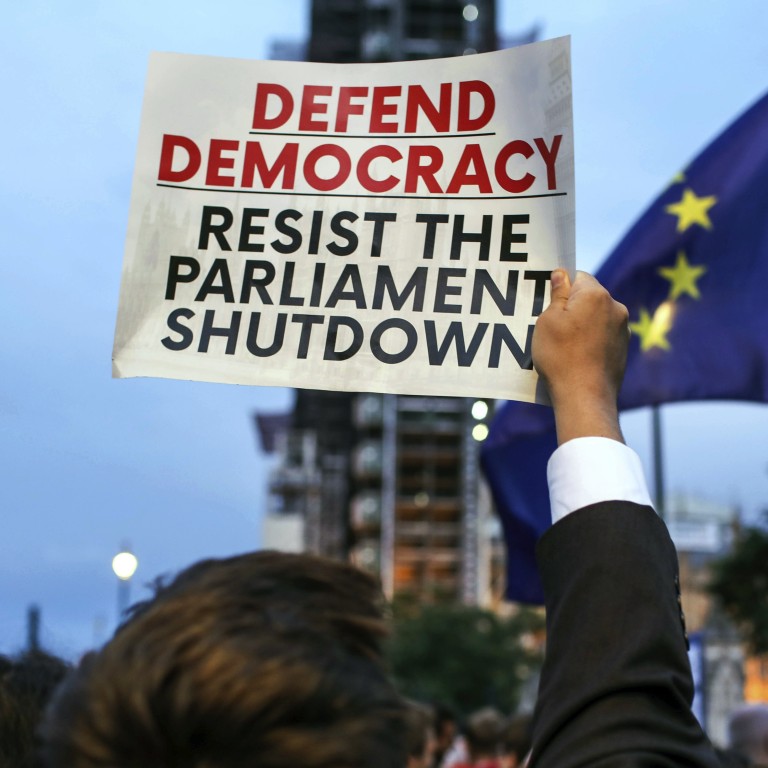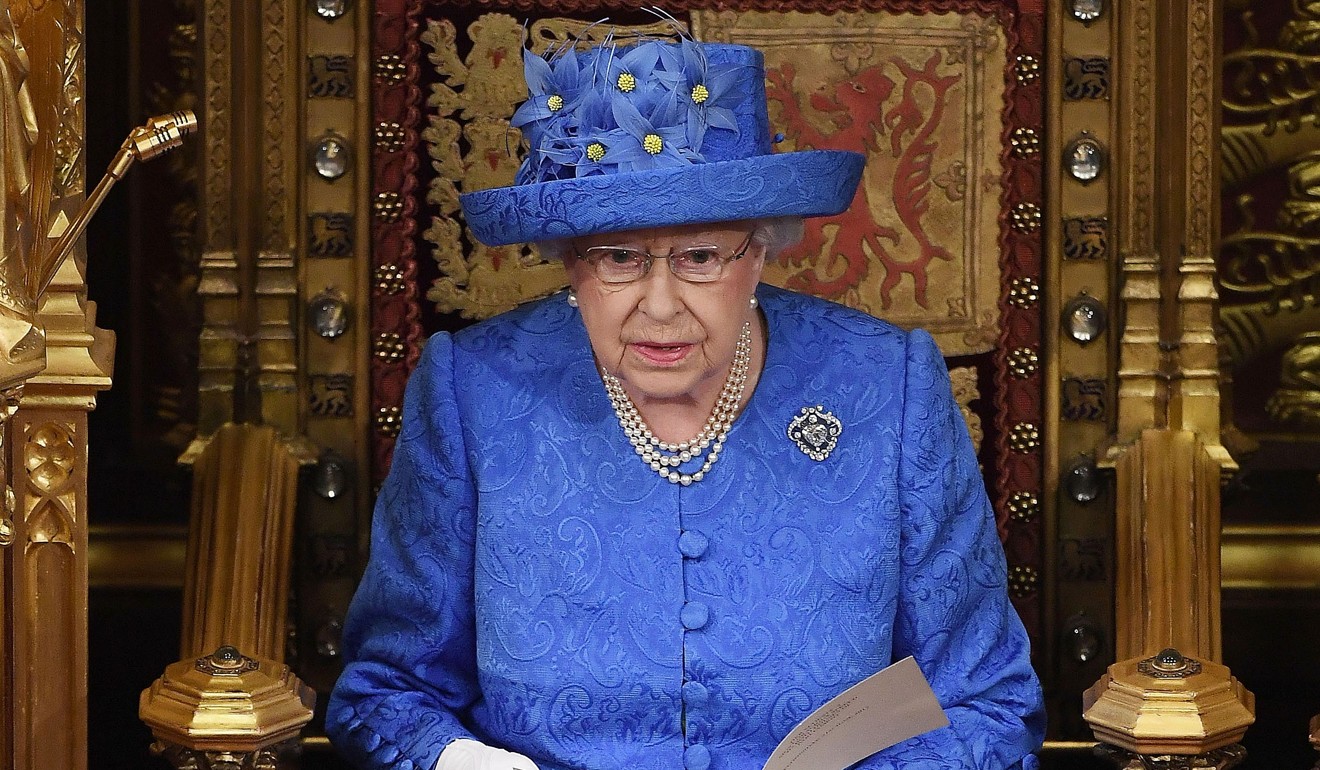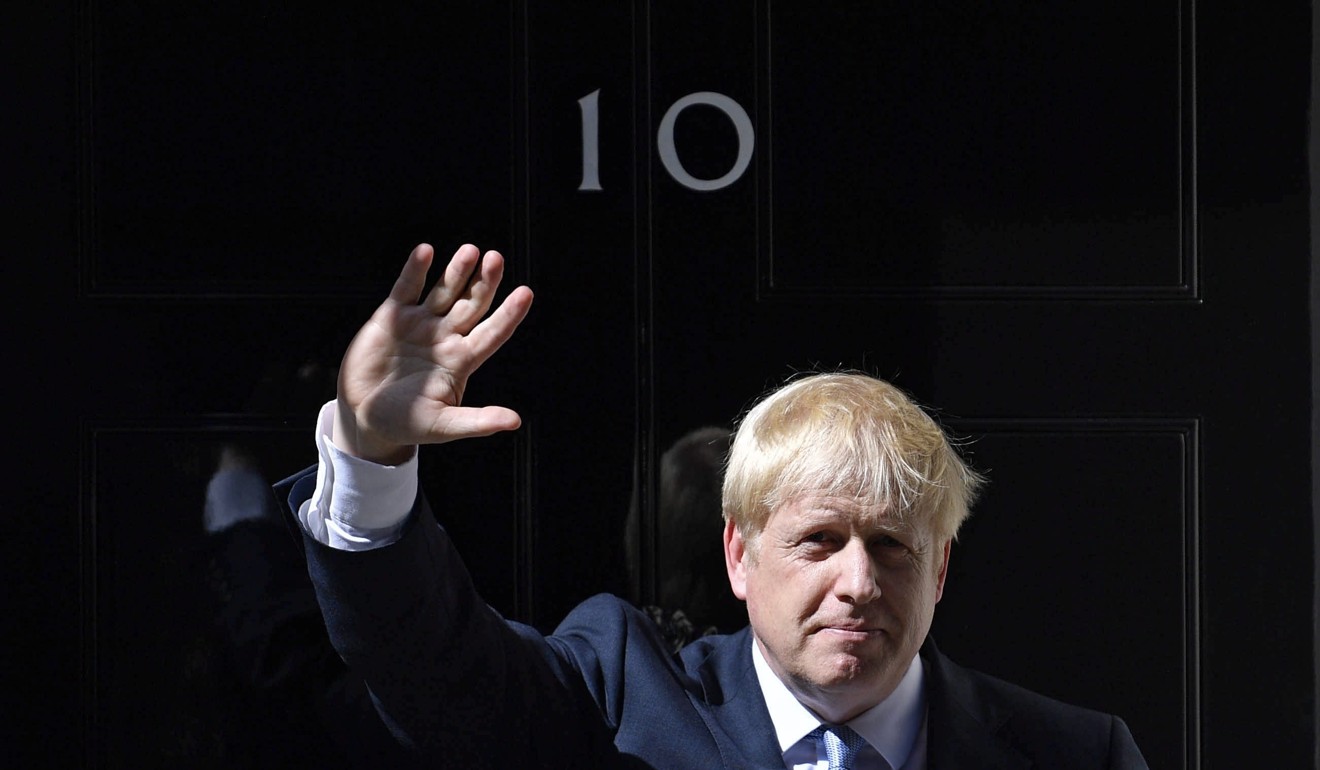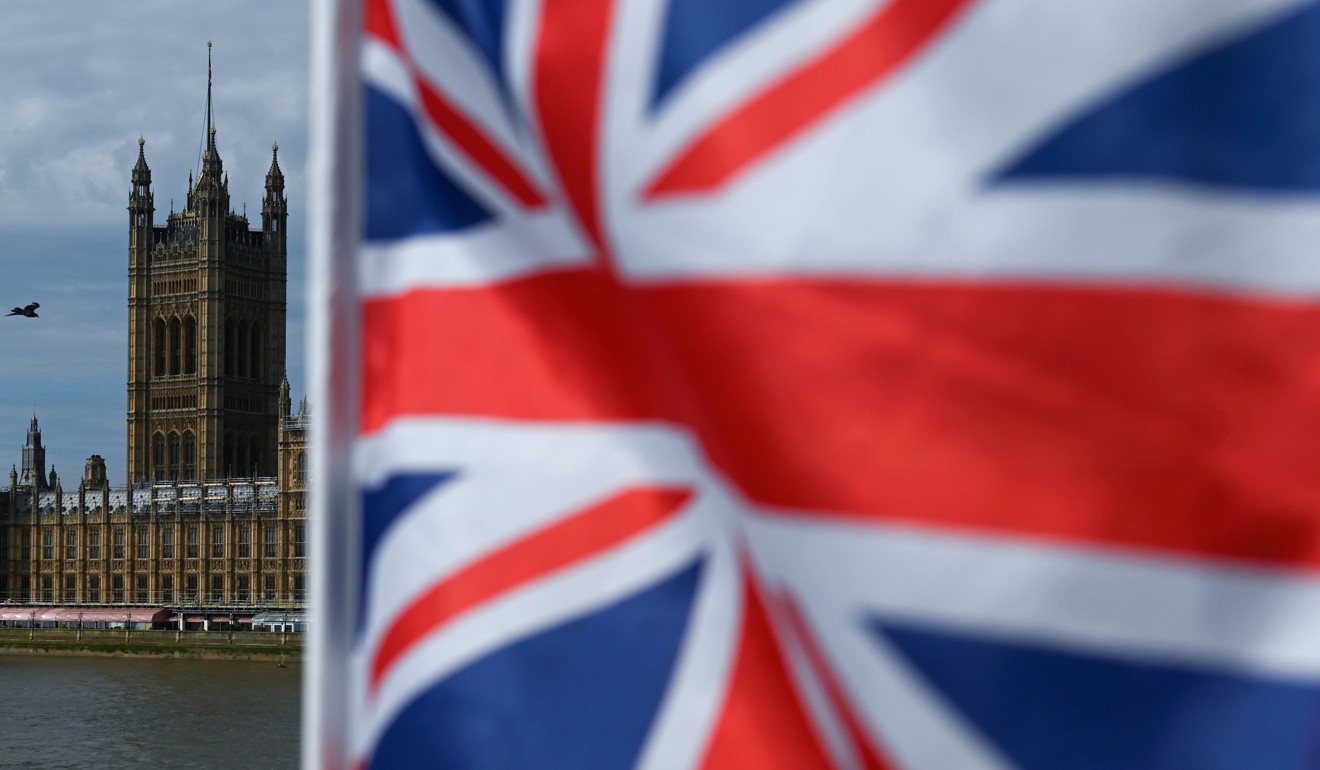
What is prorogation? A simple guide to what is happening in UK politics
- If the past few years of Brexit debate have passed you by, here is what you need to know
What is happening in Britain?
The government, led by prime minister and arch-Brexiter Boris Johnson, has been granted permission by Queen Elizabeth to suspend – or prorogue – the UK Parliament for a crucial five-week period before October 31, when Britain is due to leave the European Union. The official reason is that Johnson is calling a Queen’s Speech for October 14, to set out his domestic programme . But the move leaves much less time for Parliament and MPs to stop a no-deal Brexit.
Doesn’t the queen usually stay out of politics?
Yes. And while she could technically have said no to the request, she is politically neutral, so refusing it could have caused an even bigger crisis.

Is Johnson doing anything unusual?
On the surface, no.
Typically, a Queen’s Speech is held every year. Johnson is a new prime minister, who took over from Theresa May in July, and so would be expected to have his own legislative priorities.
Because of the volume of legislation that was anticipated ahead of Brexit, the current parliamentary session has lasted more than two years. The last Queen’s Speech was in 2017.
The government says a new programme is overdue.
Parliament is normally suspended for a few days ahead of a Queen’s Speech. In recent years this suspension has lasted for between five and 20 days.
Why are some people so angry about it?
Because of the timing.
Britain is weeks away from making its most important strategic decision in decades over how, and even whether, it leaves the EU.
The decision to hold the Queen’s Speech on October 14 shaves several days off an already small number of parliamentary sittings before October 31 – the Brexit deadline.
Johnson says he wants to leave the EU with an exit deal to smooth the transition, but if he can’t get one, he’ll leave anyway.
A narrow majority of lawmakers have shown they do not want a no-deal exit and are hoping to use parliamentary procedures to stop Johnson and force him to request extra time from the EU.

Can the proroguing be reversed?
Proroguing parliament is not voted on by MPs so cannot be stopped in this way. The Conservative MP (and former attorney general) Dominic Grieve said he and others were working on a plan to organise a “humble address”, which is a direct call from the Commons to the queen.
“I don’t think parliament can stop prorogation, although there may be something that parliament can do to register its deep concern,” he said.
A humble address is binding and can be used by the opposition to express its strength of feeling to the government or request that it hand over documents. It has rarely been deployed in the past 200 years but Labour successfully used it in 2017 to make a direct appeal to the queen that the government make public its economic impact assessments of Brexit.
In the meantime a public petition against parliament’s suspension had gathered more than a million signatures.
It is the fastest-growing parliamentary petition since more than 6 million people signed a statement calling for article 50 – the mechanism for leaving the EU – to be revoked earlier this year.

What happens now?
Parliament returns from its summer break on September 3 and sits for at least a week.
The government has said it will begin procedures to start the suspension on September 9. The last sitting day before the Queen’s Speech is expected to be shortly after that, but has not yet been confirmed.
This gives those opposed to a no-deal Brexit just a few days to get their plans in motion.
On October 14 the queen will formally reopen Parliament and deliver the speech. This will be followed by a debate lasting several days on the contents of the speech and culminating in votes on October 21 and October 22.
Winning these votes will be a crucial test of Johnson’s ability to govern.
However, if he loses and his government is subsequently toppled by a vote of no confidence, he would have scope to delay his resignation and a new election until after October 31.
Between the speech being delivered and the votes upon it, Johnson will travel to Brussels in search of a last-minute, renegotiated exit deal. The summit takes place on October 17-18.
The Guardian and Reuters
